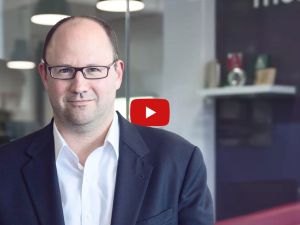By Chris Rudden, CFA, Head of UK Investment Consultants
I read a very thought provoking article in the FT this week, by Vanessa Houlder and Nathalie Thomas, about the fact that investors are underpricing the risk of climate change, suggesting the effect it would have on broader investments was greater than expected (claiming it could be up to a 40% hit over 40 years). It got me thinking about investing more for climate change outcomes.
But I’d like to start with a caveat: whether you’re not a big believer in climate change, or you’re incredibly clued up on climate change, my education is in Investment Management – I don’t seek to preach or educate about climate change in this article. Instead, I’d like to focus on an area that I think goes under the radar when talking about ESG investment: hedging.
The three types of ESG investing
When it comes to investing in environmental change (the E in ESG), I’d very crudely break it down into three main categories:
- You have the more traditional ‘screening out’, which seeks to remove negative contributors from a broadly diversified investment portfolio. This is actually how we structure our ESG portfolios. The aim here is to maintain a very diversified exposure in terms of sector, geography and asset class, but you remove investments directly into fossil fuels and similar sectors – such as companies that don’t adhere to the Paris agreement.
This is the best way to invest with a large proportion of your assets, as it keeps your risk exposure much more broad, however you could argue it has the least impact in relation to climate change itself.
- Then you have “impact investing’. This tends to focus a lot, although not completely, on investing directly into clean energy, such as wind farms. The idea here is to have an impact on reducing climate change, or more accurately, investing into the companies that are.
- The third one is the one that perhaps gets somewhat overlooked, and is what I want to focus on a bit more here: hedging against the outcomes of climate change.
Hedging against potential impacts of climate change
If we look at the effects of climate change, drought for example, it’s predicted that drought will increase dramatically if we cannot keep below the 1.5 degree per year target (and perhaps even if we do). So this is where investments into things such as clean water become more interesting.
The effects of these droughts would have huge impacts on supply chains, food production and many other factors. This would have an effect on everything and can really impact more general investments. By investing in water, in this example, you can offset this hit in the portfolio should these issues occur.
The more sceptical amongst you may argue that this is profiteering from natural disaster. In terms of price mechanics you may be correct. However I would argue that this is more like an ‘insurance’ or a hedge against a risk type that will be more and more prominent. In the same way that a portfolio manager might buy inflation linked products to protect against inflation, or ‘short-sell’ to protect against economic downturns, both of which sadly can have broader negative impacts on human lives. We now have to start seeing climate change as an investment risk factor. As with all hedges, we hope that it doesn’t become needed.
Using hedging and diversification to your benefit
Looking at investments that are related to the outcomes of climate change, and not just the inputs, can help to hedge your portfolios to risks that climate change can bring. For example, we have a clean water ETF on our new ‘share dealing’ platform and also in our ‘Sustainability theme’ in our thematic investment offering which can be added to your managed portfolio.
As with ‘impact investing’, this should be done carefully. These are volatile sectors and can have concentrated risks. For example, our Water ETF has volatility of around 15% over the last 3 years (source: morningstar). So it’s wise to have these investments as part of a ‘core-satellite’ approach. This is where you have 80-90% of your investments in a broad, diversified portfolio and then the subsequent 10-20% (depending on your risk appetite) in the ‘satellite’ which is the segment for more concentrated bets.
My aim here is not to recommend that everyone goes out and buys water investments, but for you to focus on hedging against outcomes. These could be investments into certain types of agriculture, for example, which could be just as relevant. Certain produce is largely produced in areas which may be unfarmable in 10-20 years as a result of climate change.
If you wanted to come at this from a more ‘light-hearted’ angle, you could investigate investing into something like British wine, for example, as this is an industry that is already benefiting from shifting climate conditions. Please note, I don’t know anything about any individual companies in this area and there are many other variables to consider when investing into individual companies.
But the key message is that the world is changing and the shifts of climate change will certainly have an impact on many things. These factors will affect people’s investments and if we prepare properly, we might be able to hedge against these events. Sometimes we can get very focused on short-term factors, such as inflation, economic growth and central bank policy – which of course have the most meaningful impact on your current investments. But it’s well worth keeping one eye on the longer term and the other factors that may start to come into play.
Moneyfarm offers many ways in which we can help make your investments more environmentally friendly, whether through our ESG portfolios (crude investment category 1 above) or through our Sustainability Thematic offering, which focuses more on categories 2 and 3. As we release our share dealing offering you can go for an even more bespoke option. If you’d like to discuss these options with our investment consultant team, please don’t hesitate to book an appointment.
But if you would like to discuss any of the points raised above with me directly, please don’t hesitate to reach out to me by sending an email to christopher.rudden@moneyfarm.com.
 Chris Rudden, CFA, Head of UK Investment Consultants: Chris is passionate about blending technology and human expertise to help people make better investment decisions to secure their financial future. With a keen interest in the impact macro economics has on investments, Chris has been at Moneyfarm for over 7 years now and is a chartered financial analyst with the CFA society.
Chris Rudden, CFA, Head of UK Investment Consultants: Chris is passionate about blending technology and human expertise to help people make better investment decisions to secure their financial future. With a keen interest in the impact macro economics has on investments, Chris has been at Moneyfarm for over 7 years now and is a chartered financial analyst with the CFA society.
Disclaimer: As with all investing, your capital is at risk. The value of investments will go down as well as up and you may get back less than you invested. Tax treatment depends on your individual circumstances and may be subject to change in the future. If you are unsure about investing you should always speak with a financial adviser. The views expressed here should not be taken as a recommendation, advice or forecast.
*As with all investing, financial instruments involve inherent risks, including loss of capital, market fluctuations and liquidity risk. Past performance is no guarantee of future results. It is important to consider your risk tolerance and investment objectives before proceeding.





